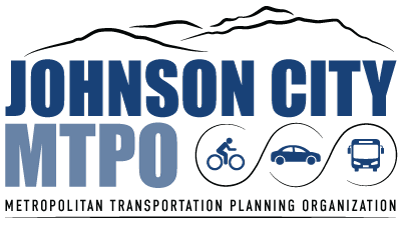What is MPO and the Metropolitan Planning Process?
A metropolitan planning organization (MPO) is a transportation policy-making organization made up of representatives from local government and transportation authorities. Since the 1962 Federal-Aid Highway Act, federal authorizing legislation for expenditure of surface transportation funds has required transportation plans and programs to be developed through a continuing, cooperative, and comprehensive (3-C) planning process. Subsequent legislations throughout the years have expanded on the 3-C planning process.

Since the 1962 Federal-Aid Highway Act, federal authorizing legislation for expenditure of surface transportation funds has required transportation plans and programs to be developed through a continuing, cooperative, and comprehensive (3-C) planning process. Subsequent legislations throughout the years have expanded on the 3-C planning process. According to the Federal Highway Administration (FHWA), transportation planning is the process of examining travel and transportation issues and needs in urbanized areas (UZAs), as defined by the U.S. Census Bureau. The planning process includes a demographic analysis of the community in question, as well as an examination of travel patterns and trends, an analysis of alternatives to meet projected future demands, and for providing a safe and efficient transportation system that meets mobility while not creating adverse impacts to the environment. In UZAs over 50,000 in population, the responsibility for transportation planning lies with the designated MPO. To find out more about the creation of MPOs and governing legislation and regulations, go to the FHWA Planning website.
Federal funding for transportation projects and programs are channeled through this planning process. As a prerequisite for the receipt of both federal transit and federal highway funding, MPOs are responsible for the development of a Metropolitan Transportation Plan (MTP), the Transportation Improvement Program (TIP), and a Unified Planning Work Program (UPWP) for its metropolitan planning area (MPA). The MPOs are also responsible for involving the public during the planning and decision making process, which is described in the Public Participation Plan (PPP).
What is the Johnson City MTPO?
In 1980, the Johnson City UZA reached a threshold population of 50,000 people, and subsequently, as prescribed by federal law, the Johnson City Metropolitan Transportation Planning Organization (MTPO) was established in 1982 (view the original Prospectus here). The Johnson City MTPO is responsible for the 3-C planning process and coordination of transportation planning activities within the Johnson City MPA, which is a boundary in the region that is established to identify areas beyond the UZA for future growth and transportation needs. The Johnson City MTPO currently serves the jurisdictions of Bluff City, Elizabethton, Johnson City, Jonesborough, part of Unicoi, and parts of Carter, Sullivan, and Washington Counties. To view the current UZA and MPA boundaries for the Johnson City MTPO, please visit the Web Maps section of this website.
How is the Johnson City MTPO organized?
The Johnson City MTPO is comprised of three organizational units. They are the Executive Board, the Executive Staff, and the administrative staff. The overall governing body and policy board for the Johnson City MTPO is the Executive Board. The Executive Board has the authority to adopt plans, programs, and policies for the Johnson City MTPO. The Executive Board is comprised of elected officials from the member jurisdictions. Members of the Executive Board may designate a representative to serve on the board in their absence. Due to the duties and responsibilities of his office, the Governor of Tennessee usually sends a representative to meetings on their behalf.
The Executive Staff is the next level of organization for the Johnson City MTPO. The Executive Staff assists in the development of plans and programs for the Johnson City MTPO region, keeps the Executive Board informed of transportation activities, and makes recommendations to the Executive Board for their consideration. Similar to the Executive Board, the Executive Staff is composed of representatives from each of the participating jurisdictions with additional agencies represented. The top administrators from each agency make up the Executive Staff. Generally these administrators are staff positions and not elected to office; however, in some cases, such as the Highway Superintendents, they are elected or appointed officials. The FHWA and Federal Transit Administration (FTA) are non-voting members of the Executive Staff. The current membership of the Executive Board and the Executive Staff can be viewed on the Board & Staff pages.
The Johnson City MTPO administrative staff consists of an MPO Manager, a Senior Planner, and a Transit Planner. The Johnson City MTPO office is housed within the City of Johnson City and is not a standalone organization. The Johnson City MTPO administrative staff reports directly to the Assistant City Manager and ultimately the City Manager of the City of Johnson City, who is the chairman of the Executive Staff. The MPO Manager is the administrative staff position responsible for the day to day operations of the Johnson City MTPO. This position coordinates transportation planning activities with local governments, as well as state and federal agencies. The Manager also serves as Secretary to the Executive Board and must be approved by the board for this position. The Johnson City MTPO also employs a Senior Planner who assists with day-to-day operations and project management. The Transit Planner is a shared between the MTPO and Johnson City Transit.
